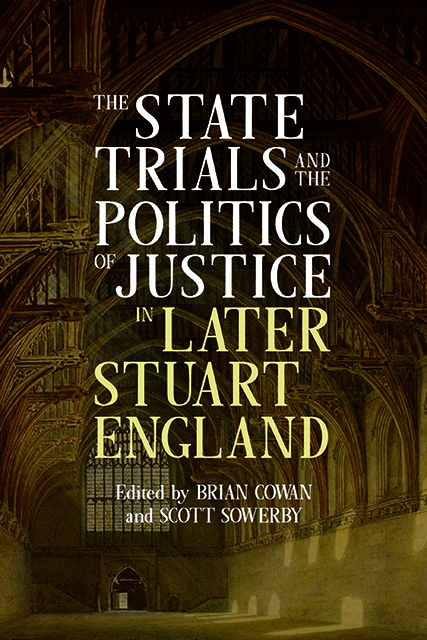8 - Revolutionary Justice and Whig Retribution in 1689
Published online by Cambridge University Press: 14 January 2023
Summary
When revolutions happen, new governments confront the problem of what to do with the agents of the fallen regime. Justice and mercy make contrary demands. Justice impels condign punishment of the perpetrators of tyranny, while mercy points towards clemency and reconciliation. The former depends for its fervour on the politics of memory, the public vaunting of narratives of suffering at the tyrant’s hands; while the latter seeks oblivion, a plenary act of public forgetting, the drawing of a veil over things past. The clamourers for justice will suspect that the advocates for ‘mercy’ are driven less by charity than by protection of the guilty; while the party of mercy sees in ‘justice’ a desire for revenge and for rewards from the spoils of victory. Cutting across this tension is a third consideration, that of political prudence, which will probably cast its vote on the side of mercy, because the stability of the revolution depends upon appeasing the residually influential agents of the old regime, and upon seducing waverers into acquiescence, instead of alienating them and provoking counter-revolution. Furthermore, the functioning of the new regime may rely upon recruiting the experienced cadres of the old.
In modern times, the jurisprudence and pragmatics of regime change have given rise to the public practice, and academic field, of ‘transitional justice’. The paradigmatic case is South Africa’s post-apartheid Truth and Reconciliation Commission, under which, with fine balance, the public narration of crimes was a precondition of mercy. The diverse patterns of transition in post-communist Eastern Europe – cadres sometimes wholesale dismissed, sometimes transmuted into servants of the new order – and in the post-Troubles transformation of Northern Ireland have generated substantial literatures, some juridical and philosophical, others in the form of ostracism through disclosure, or controversies concerning memory and forgetting. In each instance, there is the triad of voices, for retribution, mercy, and stability.
A great deal of politics during 1689 was dominated by this triad. The Whigs pursued retribution and the Tories demanded amnesty. The king understood that preserving the new regime required conciliation, and, in 1690, his view prevailed. William III’s abrupt curtailment of retributivism and its advocates, and insistence on the passage through parliament of a statutory amnesty, was devastating for the Whigs.
- Type
- Chapter
- Information
- Publisher: Boydell & BrewerPrint publication year: 2021



